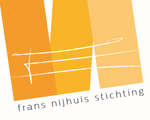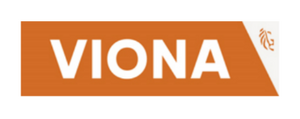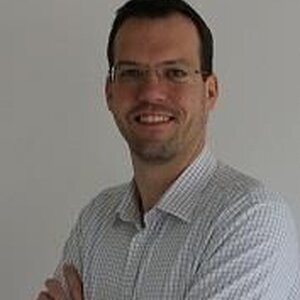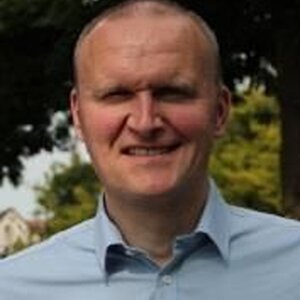Micro-credential 'Systemic transformation"
Everything works in systems. If you change one element in the system, the rest changes with it. If you want to facilitate sustainable change in your organization or for your initiative, systems thinking is indispensable. But how do you get started? How do you tackle systemic transformation? This microcredential provides the answer. It gives you insights into and tools for systemic change. The ideal start for every experienced professional who is committed to sustainability and wants to enable concrete change!
With Odisee Continue, we offer a wide range to anyone who wants to keep up, develop personally or retrain.

This microcredential is organized by Odisee's Center for Sustainable Entrepreneurship and the Flemish Institute for Agricultural, Fisheries and Food Research (ILVO).
Something for you?
This microcredential is for you if you are a professional engaged in or interested in processes aimed at sustainable change.
In this training we offer you tools to devise interventions, in co-creation with stakeholders and from a systemic perspective. In this way, you learn to identify the right actions. Useful for those who have responsibility for a team, for those who want to better substantiate policy advice or decisions and for those who want to apply systems thinking to a professional case. Some experience with change in a professional context is recommended as this gives you a stepping stone to hang what you learn on.
What can I expect from this course?
This microcredential is your hands-on introduction to systemic change. You will learn to look beyond the tip of the iceberg. You will learn to identify what is visible and what is not immediately visible so you can initiate appropriate interventions in the system. You will be given the insights and tools to address and follow up on complex sustainability issues.
This microcredential therefore provides you with the necessary tools to work with your organization and others on a sustainable society, to take up social challenges and to facilitate transformation.
Content and learning objectives
In this course you will gain knowledge about the importance of systems thinking, the vocabulary of the systems thinker, and techniques & tools to use systems thinking in systems change.
You will also learn how to apply all this in practice. You will gain insight into how systems work, how to intervene in a system and follow up on change using the UNITE framework. You will be challenged to apply systems thinking to real sustainability cases. Systems thinking requires an open, creative and inquisitive mindset. Thanks to this mindset, you learn to consider your role in the bigger picture and understand the importance of relationships in dynamic systems. This way, systems thinking becomes your guideline in your personal and professional actions. In short, this training will make you a successful systems innovator.
- Module 1: Introduction, intake and outline course
- Module 2: UNderstanding through systems thinking
- Module 3: INtervening for systemic change
- Module 4: Track and Evaluate systemic change
Teachers
Prof. Dr. Ir. Fleur Marchand is Scientific Director at ILVO (Flemish Institute for Agricultural, Fisheries and Food Research). She leads a team of nearly 60 scientific researchers with diverse disciplinary backgrounds and manages several, often European, research projects there. She uses her expertise as a systems thinker and her experience with systems innovation and transdisciplinary work mainly so that research and innovation benefit a transition to more sustainable (food) systems. In addition to her work at ILVO, Fleur is also a guest lecturer at IMDO, the Institute of Environment and Sustainable Development at the University of Antwerp.
Prof. Dr. Bart Henssen is head of Odisee's research center CenSE (Center for Sustainable Entrepreneurship). Bart is also an affiliate researcher at the Center for Family Entrepreneurship and Ownership at the Jönköping International Business School in Sweden. He holds a PhD in Applied Economics, a Masters in HRM and a Masters in Social Work and Welfare Studies. He is also a subject matter expert in research on family businesses, sustainable business practices, corporate governance and sustainable HRM practices. Bart has been advising and guiding SMEs and family businesses in their systemic transformation for several years.

Interested in a customized offer?
Practical info at a glance
Where, when, how much does it cost, who should I contact?
You'll find all the practical information below.
Contact us
Contact Elien Crois. After registering, you will be invited to an online intake interview.
Convinced? Or still need a little more information?
This training is really for me!
Are you convinced that this is the course you are looking for? Then you can enroll right away.
Would you like to stay up to date on our after-forms?
Then subscribe to our newsletter!

Transnational Family Dynamics in Europe (TraFaDy) aims to deepen the knowledge of the growing, rapidly changing phenomenon and dynamics of transnational families (TNF) by bringing together researchers and stakeholders from different disciplines and countries to address the need for transnational insights and to formulate policy and practice-oriented recommendations with an impact on international, national, sub-local and local practices.

The main objective of this COST Action is to deepen and broaden the scientific understanding of transnational families by stimulating international and multidisciplinary knowledge exchange and innovation in research, policy and practice.
The action seeks to exchange and develop knowledge on transnational families from different countries and disciplines and to formulate concrete recommendations towards policy and practice.
To achieve this, the Action is structured into 4 thematic working groups (WGs) and 2 horizontal groups, which address critical areas that are gaining importance in research, practice and policy and therefore require significant theoretical and empirical development.
- Kinkeeping within transnational families in a global and digital era;
- Integrating the perspective of vulnerable children and youth in welfare and policy;
- Social rights and social protection of transnational families;
- Health and well-being of transnational families;
- Talking across disciplines: Methodological issues in TNF research and data collection (horizontal group)
- Practices and policy impact group (horizontal group)
Get to know the COST staff
Mieke Schrooten (Action Chair), Sven Iversen (Action Vice Chair)
Grants and protocols
First conference grant call
The first conference grant call for 2023 is now out: apply before January 6 to compete for one of the two dissemination conference grants or one of the four ITC conference grants to attend a conference before 2 October 2023.
First STSM call
TraFaDy encourages and supports the Short-Term Scientific Missions (STSMs). STSMs are exchange visits aiming at strengthening the existing networks by allowing individual researchers to go to an institution or laboratory in other COST country to foster collaboration and contribute to the scientific objectives of the COST Action CA21143.
Apply before January 6 to compete for one of the 5 STSM grants to be awarded and conducted before 2 October 2023. Applicants are invited to apply for one of the proposed topics related to specific Working Group (WG) objectives or propose their individual research theme.
First virtual mobility grant call
TraFaDy encourages and supports Virtual Mobility (VM). VMs consists of a collaboration in a virtual setting among researchers or innovators within the COST Action to exchange knowledge, learn new techniques, aiming at strengthening (the existing) networks and contribute to the scientific objectives of the COST Action CA21143.
Apply before January 6 to compete for the one VM grans to be awarded and conducted before 2 October 2023.

Interested?
Becoming part of COST
How to apply to become part of the Network? Find out more here.
Labour market tightness. A hot topic. Finding and retaining staff is becoming increasingly difficult. One possible way to respond to this is to rethink existing work through job redesign.
With this study, we wanted to gain insight into the benefits, applicability and feasibility of job redesign (including i-deals, job crafting, job carving and inclusive job design) as a strategy for the inflow and retention of personnel in hard-to-fill vacancies in Flanders. This was done through 1) a thorough exploration of the concepts of job redesign; 2) a study of good practices from home and abroad; and 3) identifying what is needed to make job redesign more widely adopted in Flemish practice.
For this study, we collaborated with Dr Brigitte van Lierop of the Frans Nijhuis Foundation from the Netherlands.

Research results
Discover the research report (Dutch): Herdenken van jobs: naar een betere instroom en retentie van personeel in knelpuntberoepen in Vlaanderen
Bart Moens, Brigitte van Lierop & Wim Peersman
and the English summary





